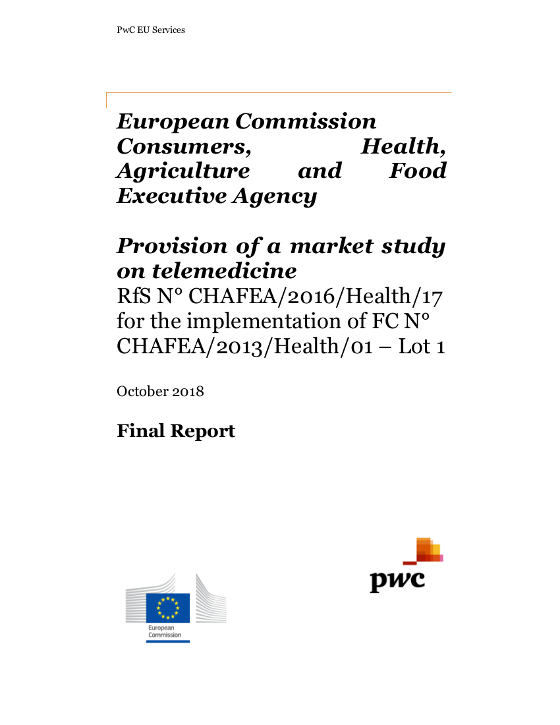 The aim of the study is to examine the telemedicine market in Europe and to understand the factors that determine its development. The analysis maps telemedicine applications and solutions, and applicable technical standards and guidelines; it also describes market dynamics and potential barriers limiting wider deployment and uptake of telemedicine solutions. Finally, the study assesses the cost-effectiveness of larger-scale deployment of telemedicine under current and future market conditions, to provide policy makers with advice and considerations for wider deployment of telemedicine.
The aim of the study is to examine the telemedicine market in Europe and to understand the factors that determine its development. The analysis maps telemedicine applications and solutions, and applicable technical standards and guidelines; it also describes market dynamics and potential barriers limiting wider deployment and uptake of telemedicine solutions. Finally, the study assesses the cost-effectiveness of larger-scale deployment of telemedicine under current and future market conditions, to provide policy makers with advice and considerations for wider deployment of telemedicine.
To achieve the study aim, both qualitative and quantitative methods of analysis have been applied to primary and secondary data. The former includes a survey and interviews with key stakeholders in the telemedicine market ecosystem. The latter refers to scientific journals and research reports as well as statistical data.
The study recognises that EU policy makers have undertaken a number of successful initiatives to facilitate telemedicine adoption. Additional interventions that would support wider deployment and uptake of telemedicine include: raising public awareness about the benefits of telemedicine, supporting large-scale projects where telemedicine can be tested and its benefits assessed, as well as legislative interventions by the EC or MSs to address some of the barriers for telemedicine adoption in the EU.
Download: Final Report: Provision of a Market Study on Telemedicine (3.500 KB).
Download from eHealthNews.eu: Final Report: Provision of a Market Study on Telemedicine (3.500 KB).